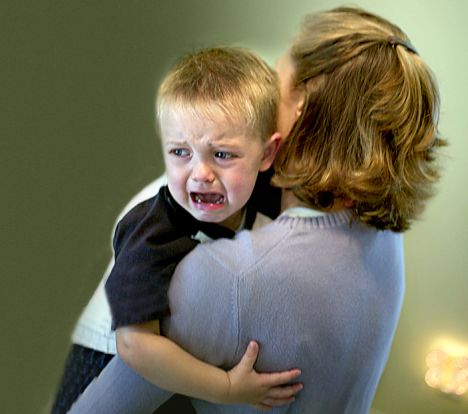School Blues: Is It Normal?
We all at some points hated school and made various excuses to bunk it. This is commonly known as School Jitters. Although most people going to school at some points in their lives do experience these jitters, however, children now-a-days may experience something more than just jitters. School refusal should not be taken simply as an excuse to not study or to sleep more, there is more to it. Thus, it is important for us as parents/adults to identify the various symptoms and thereby take suitable actions.
A child experiencing more than just "school jitters" usually refuses to go to school on a regular basis, or has problems staying in school once there. This should not be confused with truant children who avoid school because of antisocial behavior or delinquency.
School refusal is often a symptom of a deeper problem and if not treated can have a negative impact on socialization skills, self-confidence, coping skills and, of course, education. Anxiety-based school refusal affects 2-5% of school-age children. It is common at times of transition, for example, graduating from elementary school to middle school and from middle school to high school. Anxieties tend to differ among age groups, but the most common stressors are:
-
separation anxiety
-
concerns about academic performance
-
anxieties about making friends
-
fear of a teacher or bully
The most common ages for school refusal are between five and six, and between ten and eleven. Children who suffer from school refusal tend to be average, or above average in intelligence.
Other common fears in school may be due to:
-
Being separated from caregivers;
-
Riding on the bus;
-
Eating in the cafeteria;
-
Using the school bathroom
-
Interacting with other children or teachers.
Their stress may come out in the form of physical symptoms, such as:
-
headaches
-
stomachaches
-
nausea
-
diarrhea
In addition to physical symptoms, there can be behavioral symptoms, which can manifest as:
-
tantrums
-
inflexibility
-
separation anxiety
-
avoidance
Older children not only experience the stress that goes along with transition from one school to the next, but there is added academic pressure in the higher grades as students begin to see their futures unfolding before them. These stresses may manifest themselves in an extreme preoccupation with appearance, sleeplessness, or rebellion. As with younger children, it is important to keep the child in school, although they may fight it. Missing school reinforces anxiety, rather than alleviating it.



